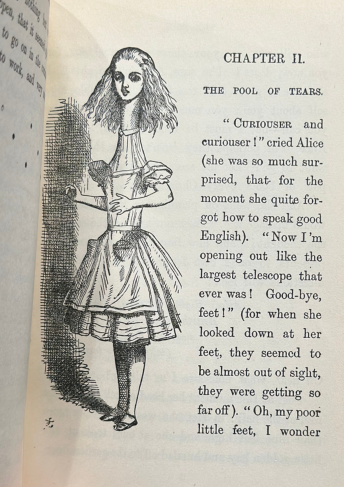[Literary Remains. Collection of manuscript Drinking Songs, Poems, and late fragments].
[Edinburgh, etc: 1815-1823].
Price: $22,500.00
About the item
56 leaves, closely written, with 4 autograph pages of verse songs dated 23 Nov. to 19 Dec. 1823 (loosely inserted, on verso of A.L.s. to Campbell, 18 Feb. 1822); and a loosely inserted receipt for one guineas for Albyn’s Anthology dated 1816. 1 vols. 4to and smaller. Old pink wrappers, edges worn, detached; printed bookseller description on upper wrapper, and an inserted manuscript title leaf. Some leaves stitched; disordered. Internally very good (small portion of last leaf split but present). Provenance: Andrew Myers, bought at Mendoza’s bookshop, Ann St., late 1960s.
Item #305557
Alexander Campbell (1764–1824), composer and writer, published several collections of Scottish songs, and while a teacher in Edinburgh “gave lessons in harpsichord and singing. Among his pupils were Walter Scott and his brothers, but the lads had no taste for the subject and the master had no patience” (ODNB). Campbell’s main project, long delayed, was Albyn's anthology, begun in the 1790s and published in 2 volumes 1816-18; a third volume was projected but never published. In later years, Campbell was dependent upon Scott and copied manuscripts for him. “At Abbotsford Campbell was known as the ‘Dunnie-wassail’ … He died from an attack of apoplexy on 15 May 1824 … His manuscripts were sold ‘under judicial authority’” (ODNB).
Campbell’s verse is rhymed and metrical. The collection opens with 15 pp. verses & drafts on smaller sheets, some dated March to September 1823, one on verso of a fragment of correspondence.
The next section is written on slightly larger leaves (some out of order):
Song 17 Oct. 1823, “Again, again, that soothing strain”;
19 Oct. 1823, “Some doat upon a damask cheek,” and three pages of fragments, 20/24 Oct. 1823;
31 Dec. 1823 , “Though in the sunless vale of years” (2 pp., docketed in pencil, Alex Campbell Scotch Poet);
18 June 1815, Lays, “Among the far-off highland fells,”; with Song, 19 Oct. 1823 on verson;
15 Oct. 1821, Song, “The silent language of the eyes” (2 pp.);
10 Aug. 1819 (date struck through), Drinking Song, air “How happy could I be“, “What boots it to waste life in bustle?” (2 pp. with marginal additions);
Undated, “Connubial Affection”, “At last she is mine own! Fate will it so” (2 pp. with extensive marginal additions);
7 May 1818 (date struck through), [Odes] “Those looks of languishment & love”; Ode XXXI To Cupid, “Tell me, my pretty Paphian boy!”; Ode XXXII To Venery, “O fairest of the Cyprian fair!”; Ode XXXIII To Hymen, “Connubial Pontiff! godlike Sire! / High Priest of consecrate desire,” (4 pp. with extensive revision and marginal additions; folded);
Undated, A Scandinavian Ode, “Hilarity reigns in the hall”, with Chorus of Scalds and verses by the Chief Scald (5 pp.); upside down on conjugate, dated 21 March 1818, “The languid look that speaks so plain” and draft verse dated 9 Apr. 1818 on verso (2 pp.);
18 Sept. 1823, page of draft verse, with portion of essay on later years of Camoens on verso
14 Oct. 1823, Song (verse drafts); Song, Gaelic Melody, “Sure, many a maiden whose love-vows are plighted”; “Now bid a long farewell ot care”; “To sing of love's delights when old”; “Oft with my dear one all the day”; He bending neck, so smooth & fair [“Roundel, published before” in pencil note] (6 pp.);
Undated, “Ospakar, a renowned Sea-King or Pirate [paragraph of prose, leading up to:] Song, “Come my manly boon companions!” (2 pp.) [cf. Scott, Abstract of the Eyrbyggja Saga, and notes below]
Undated, “And should his face assume an air” (3 pp. draft verses); An inanimate Beauty, 8 lines;
Notes for Ospakar’s Song 2 pp.: 11. Thrandar, “before assuming the christian faith had been a Bersarkar ” [quoting Walter Scott, Abstract of the Eyrbyggja Saga, p. 510 in Illustrations of Northern Antiquities, 1814];
with poem, “What is Love” on verso (2 pp.);
To Cupid, “Tell me, my pretty Paphian boy,” (2 pp., another draft)
The third section is written on larger 4to sheets of laid paper (undated, generally a clearer hand):
Song, “Ere the odorous peas blooms breathe scent to the gales” (1-1/2 p.)
4 pp., four poems or songs: “Her modest witching looks of love”; Love-similies, “know ye not what love resembles?”; “Twas on a day of spring-time fair”; and “Sing to my love sweet roundelays”;
20-22 Sept. 1813,The female Eremite [* “founded on fact, Catherine Jamieson was the name of the person alluded to”], “Heart rending is my tale of woe, …” ballad of a virgin's resolve tested by the arrival of Lachlan of Glenlyon, 65 quatrains on 13 leaves (rectos only, one verso with notes on the aurora borealis);
1 June 1822, In the manner of Goldsmith, 8 lines (with revisions), signed “A.C.”; on verso, To a Skull (2 pp.); “A vernal lyric” (4 pp., drafts);
18 Feb. 1817, Ode, to the Nightingale, (8 pp., signed on recto of last leaf “A.C.”).
There are three pencil annotations, “Alex Campbell Scotch poet”; “Roundel, published before”; and one other less legible; with an old ink slip pasted down, reading “Mr. Gubbins has had it suggested to him that the pencil notes are by Sir Walter Scott, who was intimate with the author”.
Several of the verses have Scandinavian roots; and Campbell quotes Scott’s Abstract of the Eyrbyggja Saga in his notes to Ospakar’s Song.
Fascinating survival of the manuscripts of a respected figure of later 18th and early 19th century Scottish literary culture.

![[Literary Remains. Collection of manuscript Drinking Songs, Poems, and late fragments]](https://jamescumminsbookseller.cdn.bibliopolis.com/pictures/305557.jpg?width=768&height=1000&fit=bounds&auto=webp&v=1675721391)
![[Literary Remains. Collection of manuscript Drinking Songs, Poems, and late fragments]](https://jamescumminsbookseller.cdn.bibliopolis.com/pictures/305557_2.jpg?width=768&height=1000&fit=bounds&auto=webp&v=1675721391)
![[Literary Remains. Collection of manuscript Drinking Songs, Poems, and late fragments]](https://jamescumminsbookseller.cdn.bibliopolis.com/pictures/305557_3.jpg?width=768&height=1000&fit=bounds&auto=webp&v=1675721391)
![[Literary Remains. Collection of manuscript Drinking Songs, Poems, and late fragments]](https://jamescumminsbookseller.cdn.bibliopolis.com/pictures/305557_4.jpg?width=768&height=1000&fit=bounds&auto=webp&v=1675721391)
![[Literary Remains. Collection of manuscript Drinking Songs, Poems, and late fragments]](https://jamescumminsbookseller.cdn.bibliopolis.com/pictures/305557_5.jpg?width=768&height=1000&fit=bounds&auto=webp&v=1675721391)
